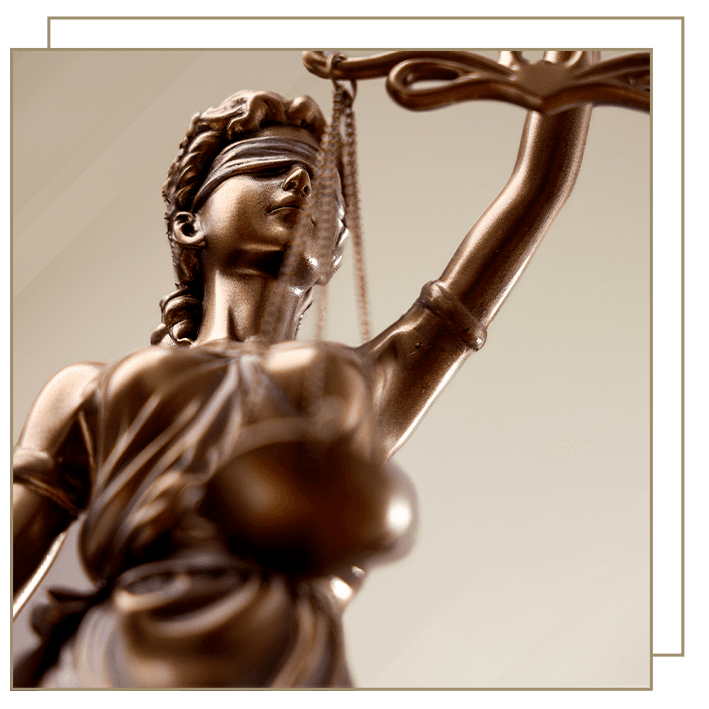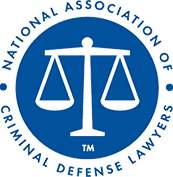
Orange County Counterfeiting & Forgery Lawyer Protecting Your Rights
If you have been accused of felony counterfeiting or illegal forgery, you need to speak with criminal defense lawyers experienced with representing clients charged with these sorts of fraud offenses. Often, counterfeiting and forgery charges are accompanied by other violations, such as insurance fraud or the theft of personal identity. If state or federal prosecutors can prove that the defendant knew and willingly committed fraud, they could face harsh consequences for their actions.
However, before you enter a guilty plea, it would be wise to consult with a lawyer experienced in defending clients in counterfeiting and forgery criminal cases.
Criminal defense attorney Diane C. Bass has spent years of her career defending the rights of clients in and out of courtrooms. Over those years, Ms. Bass has defended clients accused of white-collar crimes, drug crimes, sexual battery, violent crimes, and criminal accusations of fraud. Her winning record is impressive, and she has long held a sterling reputation for her professionalism and knowledge of complicated laws.
What Are the Elements of a Crime of Counterfeit and Forgery?
Anyone who intentionally passes, attempts to pass, sells, publishes, conceals, or brings into the United States any falsely made, forged, counterfeited, or altered financial instrument can be charged with counterfeiting. Most commonly, counterfeiting refers to the imitation of paper money or coins, but the crime can also involve checks, tickets for public transit, sports trading cards, and a variety of other items.
Forgery involves the making, altering, use, or possession of false writing to commit fraud. Forgery can occur in many forms, such as signing another person’s name on a check or falsifying one’s own academic transcript. When forgery involves currency, it is also called counterfeiting.
So, to prove a case of forgery, a prosecutor must:
- identify a written instrument;
- show that the defendant made the written instrument, materially altered an existing written instrument, or falsely signed a written instrument; and
- prove that the defendant acted with an intent to defraud.
More specifically, a core element of criminal forgery is that a person makes, alters, uses, or possesses a false writing. Keep in mind that to serve as the basis for forgery charges, the writing in question must have a legal significance and be false, where the false statement changes the fundamental meaning of the writing.
Additionally, to be punishable as forgery, the writing in question must have apparent legal significance. This includes government-issued documents like drivers’ licenses and passports; transactional documents like deeds and receipts; financial instruments like currencies and stock certificates; and other documents, such as wills, patents, medical prescriptions, and works of art. Note that to have legal significance, a document must simply affect legal rights and obligations. So, while forging a physician’s signature is forgery, signing another person’s name to a letter to a friend would probably not constitute forgery because, in most cases, the letter does not have legal significance.
Lastly, to be guilty of forgery, the defendant must have intended to defraud someone or some entity like a government agency. The purpose of this rule is to protect those who possess or sign fraudulent documents without knowing that the documents are false so that they will not be subject to criminal liability. As a result, a common defense to forgery or counterfeiting charges is that the accused lacked intent to defraud.
What is the Difference Between Forgery and Counterfeiting?
All forgeries and counterfeits are fakes — something made to pass as real or authentic. But not all fakes qualify as counterfeits or forgeries — just because it isn’t real doesn’t mean there is an intent to defraud others.
A forgery is a fake or illegal copy. Examples of forgery-based fraud include signing someone else’s name on a written document without their consent in order to pass off the document as genuine or copying a signature for a promissory note. Forgery charges are often accompanied by fraud charges for identity theft, mail fraud, check fraud, insurance fraud, securities fraud, and credit card fraud offenses.
A counterfeit is something that was made to appear real but is, in fact, not, such as a fake bank bill, lottery ticket, or public seal. Counterfeit charges can also be filed against those who have made illegal imitations of copyright, trademark, or patent-protected works with the intent to defraud others for financial or personal gain.
What Qualifies as a Public Seal?
It is strictly illegal to forge or counterfeit a seal of the city, county, state, federal government, or legally constructed corporation. Examples of seals that are protected under federal law include:
- The seal of an established corporation, business entity, bank, or law firm.
- The Seal of a County in California.
- The Seal of a Foreign Country.
- The Seal of a Government Agency, for example, the FBI or IRS.
- The Seal of the State of California.
If federal prosecutors can prove that the defendant showed an intent to defraud with the use of a fraudulent public seal, the defendant may find themselves stuck with either a misdemeanor or felony charge.

What is the Jail Sentence for Forgery?
In most states, forgery is a felony punishable by a range of penalties, including jail or prison time, significant fines, probation, and restitution to the alleged victims. Some states, though, consider certain types of forgery misdemeanor offenses, punishable by a county jail term of up to one year.
Be aware that laws do permit the state to consider felony sentencing of imprisonment for 16 months, two years, or three years. In most cases, felony counterfeiting is punished with two to four years’ imprisonment, and the state may also consider the defendant’s criminal record and any applicable aggravating factors to determine whether they should serve the term of imprisonment in state prison instead of in county jail.
Attorney Diane C. Bass is an experienced and zealous defender who has an outstanding reputation among judges, prosecutors, and legal colleagues throughout Southern California. She is dedicated to defending her clients in trial and has a proven track record with excellent results for past clients. If you are looking for a tenacious attorney to handle your forgery or counterfeit charge, do not hesitate to work with Attorney Bass.
How Could Criminal Defense Attorneys Help Your Case?
If you have been charged with fraud or the creation of forged or counterfeit materials, it is highly recommended that you seek the legal representation of experienced criminal defense attorneys. In Southern California, the Law Office of Diane C. Bass is considered one of the finest criminal law firms and would be proud to represent you in your upcoming case.
As your attorney, Ms. Bass may attempt to establish reasonable doubts that you ever intended to defraud anyone. In order to be found guilty in a court of law, the defendant must have had the intent to defraud others with their scheme. Without that intent, the accused could be found innocent of the charges under the penal code.
Sometimes, charges for forgery or counterfeiting result from a simple misunderstanding or even mistaken identity. Whatever the case may be, as your legal representation Ms. Bass will attempt to provide you with a winning defense that reaches a satisfying outcome for all those involved.
However, it is important that you respect the charges and do not treat them dismissively. If convicted, it is possible that a defendant could receive time behind bars in a county jail, large financial penalties, or some combination of punishments under the penal code.
Trusted By Clients
Reviews & Testimonials
-
"She will put your anxiety at ease and get you through the tangled system."Diane is the perfect mix of gentle understanding and fierce action you’ll need if you find yourself dealing with the OC court system.- Angie T.
-
"Whatever you’re going through, I’m confident Diane will achieve the best outcome you could hope for."My first impression was that she’s very experienced, no-nonsense, knows the law, how the system works, and was very busy as a result. I quickly realized that she exceeded even those first impressions but also cared very much about my story, needs, an- Daniel B.
-
"From the start of my case, she has been there for me."First of all, I would like to thank Diane for everything she has done for me. From the start of my case, she has been there for me. Only very few people were granted bond and she pulled it off in my case. I know for a fact not too many lawyers could have done that. I am on probation for three years.. while “the others” will not have the chance to raise their children and live their lives. I was headed to prison….I am free.. and for that, I am forever grateful.- John H.
-
"Diane Bass is a phenomenal attorney."After meeting with Diane I felt immediate comfort, and I was sold on the fact that I could trust this amazing person with my life. Diane Bass was there for me every step of the way like no other attorney had ever been.- Ryan O.
-
"She is not afraid to battle for you. With her, you will never be alone."Diane is a brilliant attorney. She listens carefully to your problems and clearly advises you with honesty. She was with me from the first day of my case and I have never been disappointed in any way.- Maria K.
-
"I highly recommend Diane if you are dealing with legal troubles of your own."Since this being my first Federal offense, I had no idea what to expect. I was extremely anxious. After talking to Diane, I felt like she was the attorney I needed to help me get through these challenging times. Her professionalism and knowledge of the law- Adam P.
-
"Diane’s work is second to none."
Diane’s work is second to none. I was charged with felony DV, and after working with one firm in Irvine that did absolutely nothing, I did some hard research and found Diane. She worked quickly and diligently and got the case dismissed. I absolutely don’t foresee me needing a criminal lawyer down the road, but if I do, it’ll be Diane hands down!
- Shadic A. -
"Diane is the most professional, thorough attorney I have ever met."Her expertise, connections, analysis, and comprehensive review of my situation were more than I could ever ask. I am extremely grateful and couldn't be happier with my choice!- Jeff R.


Why Choose Law Office of Diane C. Bass?
-
Top-Rated & Award-Winning Legal RepresentationWe consistently deliver results that exceed expectations, earning the trust of clients and accolades from the legal community.
-
25+ Years of Criminal Defense Legal ExperienceWith over 25 years of criminal defense legal experience, we bring a wealth of seasoned insight and a proven track record of success to every case we handle.
-
Extensive Knowledge & Experience With Federal CasesWith extensive knowledge and experience in federal cases, we offer comprehensive legal strategies tailored to the complexities of each situation.
-
An Outstanding Reputation Amongst Clients & PeersOur reputation among clients and peers alike reflects our unwavering dedication to achieving the best possible outcomes for those we represent.
-
Featured in the MediaAttorney Bass is frequently featured in media outlets such as The Washington Post, LA Times, ESPN, Forbes, the Wall Street Journal and more.
-
Track Record of SuccessWith a track record of handling some of the most significant cases in the Central District of California, our firm brings unmatched experience to every client's defense.




